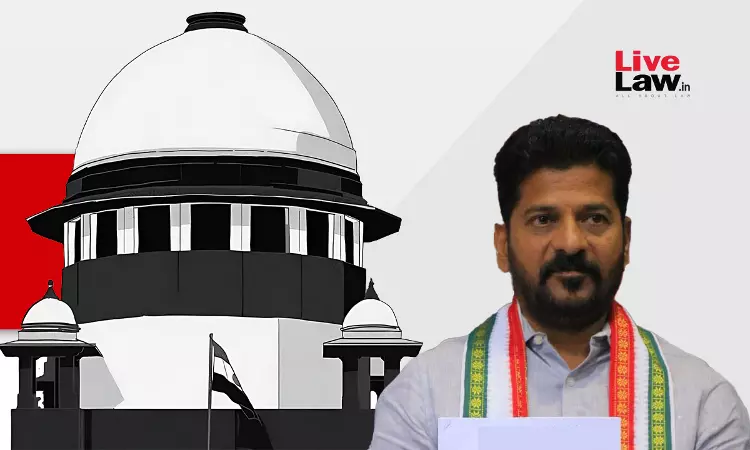Supreme Court To Hear In February Telangana CM Revanth Reddy's Plea Challenging Trial In 'Cash-For-Vote' Case
Awstika Das
5 Jan 2024 1:20 PM IST

Next Story
5 Jan 2024 1:20 PM IST
The Supreme Court on Friday (January 5) adjourned the hearing of Telangana Chief Minister Revanth Reddy's plea challenging the trial court's jurisdiction to try a cash-for-vote scam case. This matter is now expected to come up after four weeks. A bench of Justices Sanjiv Khanna and Dipankar Datta was scheduled to hear a special leave petition filed by A Revanth Reddy, the current Chief...
